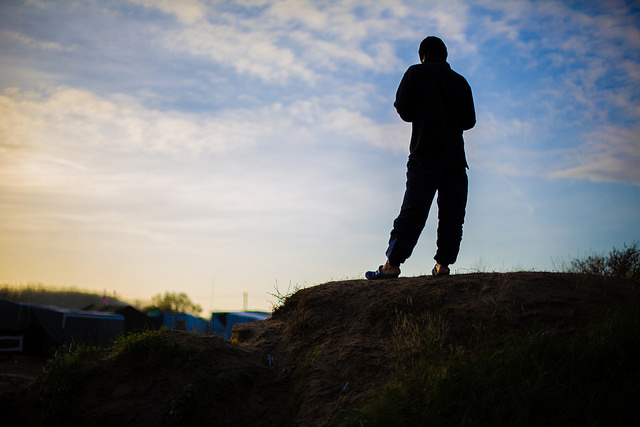But since the wars of the Middle East and especially in Syria have assumed the proportions of mass slaughter with no end in sight, the scale of the situation has altered. Held hostage between the warring parties, bombed, starved, and terrorised, entire populations have been thrown into a perilous exodus that, at the price of thousands more dead, pushes men, women, and children towards neighbouring countries and knocking at Europe’s doors.
This is a major historic and humanitarian catastrophe. It presents us with a responsibility of which there is no way out.
The incapacity of the governments of all our countries to put an end to the causes of this exodus (if they are not indeed contributing to their exacerbation) does not exonerate them of the obligation to save and welcome the refugees, while respecting their fundamental rights, which, with the right to asylum, are enshrined in the foundational declarations and conventions of international law.
However, with few exceptions – Germany’s exemplary initiative, an initiative that has still not been suspended today; and the gigantic effort by Greece to rescue, welcome, and escort the thousands of survivors who daily arrive on their shores, even if its economy has been plunged into devastating austerity – Europe’s governments have refused to face the overall situation, to explain it to their populations, and to organise solidarity and go beyond national egoisms. On the contrary, from east to west and north to south, they have rejected the minimal plan for distributing the refugees worked out by the European Commission or are involved in sabotaging it. Worse, they are engaging in repression, stigmatisation, and the brutalisation of refugees and immigrants in general. The situation of the ‘jungle’ of Calais, followed now by its violent dismantling, in disregard for the spirit and letter of a court decision, is a scandalous, though not the only, illustration of this.
By contrast, it is the citizens of Europe and elsewhere – fishermen and inhabitants of Lampedusa and Lesbos, activists of refugee relief and immigrant support networks, lay and religious shelter centres, endorsed by artists and intellectuals – who have saved their honour and pointed the way to a solution. However, they are running up against insufficient means, and sometimes the hostility of public authorities, and they have to face, like the refugees and immigrants themselves, a rapidly growing European xenophobic front ranging from violent, openly racist or neo-fascist organisations to ‘respectable’ political leaders and governments increasingly overtaken by authoritarianism, nationalism, and demagoguery. Two completely incompatible Europes are facing each other, and from now on we have to choose between them.
This xenophobic tendency, which is deadly for the victims of violence and ruinous for the future of the European continent as an space of liberty must be reversed immediately.
With 60 million refugees in the world, Lebanon and Jordan receive a million of them each (representing, respectively, 20 per cent and 12 percent of their populations), and Turkey receives 2 million (3 per cent). The million refugees who arrived in Europe in 2015 (one of the richest regions in the world, despite the crisis) only represent 0.2 per cent of its population! Not only do the European countries, taken as a whole, have the means to welcome the refugees and treat them with dignity but they must do so in order to continue to lay claim to human rights as the foundation of their polities. It is also in their interest if they want to begin to recreate the conditions for peace and collective security, along with all the countries of the Mediterranean area that have shared the same history and same cultural heritage for thousands of years. And this is what has to be done to remove from our horizon, once and for all, the spectre of a new epoch of organised institutional discrimination and of the elimination of ‘undesirable’ human beings.
Nobody can say when and in what proportion the refugees will ‘go back home’, and nobody should underestimate the difficulty of the issue to be solved, of the resistance which it generates, and the obstacles and dangers it carries with it. But nobody can continue to ignore the will of the populations to receive refugees and the refugees’ wish to integrate. Nobody has the right to declare the problem unresolvable in order to evade it more easily.
Very large-scale emergency measures thus are needed immediately.
The task to provide assistance to the refugees from the Middle East and Africa in the framework of a state of emergency has to be proclaimed and implemented by the governing bodies of the EU and carried by all the Member States. It has to be upheld by the United Nations and be the object of a permanent consultation with democratic states of the whole region.
Civilian and military forces have to be deployed, not to carry out a coastal guerrilla action against the ‘smugglers’ but to bring aid to the immigrants and to put an end to the scandal of the drownings at sea. It is in this framework that it will possibly be necessary to crack down on the traffic and condemn the complicity that benefits from it. It is prohibiting legal access that generates Mafioso practices, and not the inverse.
The burden of the frontline receiving countries, in particular Greece, must immediately be relieved. Their contribution to the common interest must be recognised.
The Schengen free-circulation area must be preserved, but the Dublin Regulation that provides for pushing immigrants back to the entry country must be suspended and renegotiated. The EU should pressure Danube and Balkan countries to reopen their borders and negotiate with Turkey to convince it to stop using refugees as a political-military excuse and bargaining chip.
At the same time, air and sea transport has to be operated to transfer all the registered refugees to the northern European countries that are objectively able to receive them instead of letting them accumulate in a small country in danger of becoming a ‘dumping ground’ for humanity.
In the longer term, Europe – facing one of the great challenges that is changing the course of the history of peoples – has to develop a democratically controlled aid plan for the survivors of this huge slaughter and for those who are helping them. It has to establish not only receiving quotas but also social and educational aid, and therefore a special budget and legal provisions guaranteeing new rights that embed the displaced populations in the receiving societies in a dignified and peaceful way.
There is no other alternative. It is either hospitality and the right to asylum or barbarism !
Primi firmatari:
Étienne BALIBAR (Francia)
Michel AGIER (Francia)
Horst ARENZ (Germania)
Athéna ATHANASIOU (Grecia)
Walter BAIER (Austria)
Etienne BALIBAR (Francia)
Marie BOUAZZI (Tunisia)
Hamit BOZARSLAN (Francia)
Marie-Claire CALOZ-TSCHOPP (Svizzera)
Edouard DELRUELLE (Belgio)
Matthieu DE NANTEUIL (Belgio)
Ahmet INSEL (Turchia)
Nicolas KLOTZ (Francia)
Amanda LATIMER (Regno Unito)
Camille LOUIS (Francia)
Giacomo MARRAMAO (Italia)
Roger MARTELLI (Francia)
Sandro MEZZADRA (Italia)
Maria NIKOLAKAKI (Grecia)
Barbara SPINELLI (Italia)
Étienne TASSIN (Francia)
Hans VENEMA (Paesi Bassi)
Frieder Otto WOLF (Germania)

